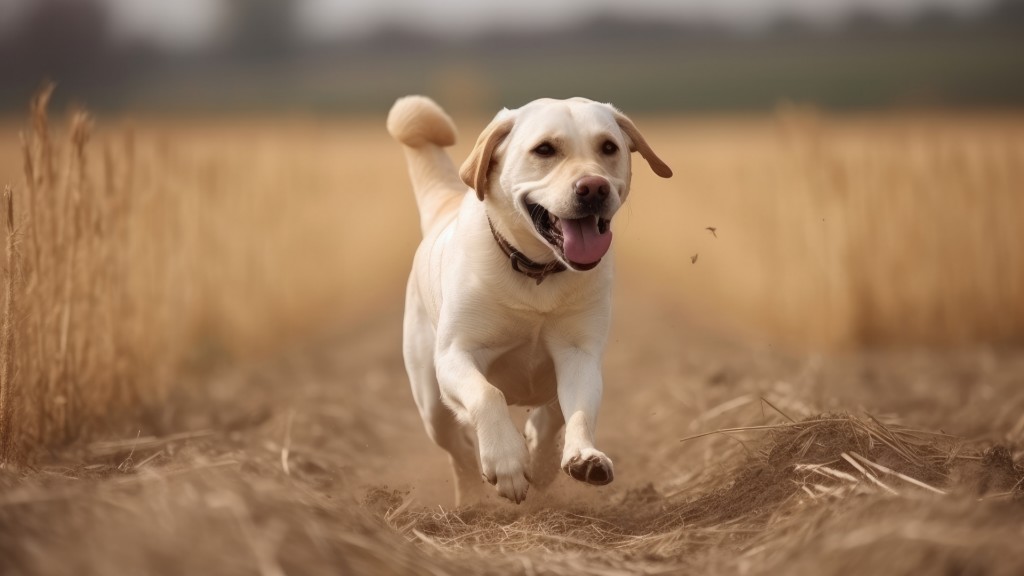Everything to Know Before Bringing Home a Labrador – Few breeds capture the hearts of dog lovers quite like the Labrador Retriever. Year after year, Labs top the charts as one of the most popular dog breeds worldwide—and for good reason.
Their friendly demeanor, boundless energy, and unwavering loyalty make them exceptional companions for families, singles, and seniors alike. Whether they’re fetching balls at the park, cuddling on the couch, or assisting in search-and-rescue missions, Labs have an uncanny ability to adapt to nearly any role.
But while their cheerful nature and versatility are undeniable, owning a Labrador Retriever comes with specific responsibilities that every prospective owner should understand.
If you’re considering bringing a Lab into your life, here’s everything you need to know to ensure a happy, healthy partnership.
Table of Contents
- 1 History and Origins
- 2 Personality Traits
- 3 Physical Characteristics
- 4 Exercise and Mental Stimulation Needs
- 5 Training and Socialization Tips
- 6 Grooming Requirements
- 7 Health Considerations
- 8 Dietary Needs
- 9 Compatibility with Families, Children, and Other Pets
- 10 Ideal Home Environment
- 11 Conclusion: A Loyal Companion Worth Every Effort
History and Origins

Labrador Retrievers trace their roots back to Newfoundland (not Labrador, as their name suggests), where they were bred as working dogs to help fishermen haul nets, retrieve fish, and swim long distances in icy waters.
In the 19th century, British nobles visiting Canada brought these hardworking pups back to England, where they refined the breed into the versatile sporting and family dogs we know today.
Over time, Labs earned acclaim not only as retrievers but also as service animals, therapy dogs, and beloved pets.
Also Read: 7 Possessive Pups That Want You All to Themselves
Their storied history highlights their intelligence, athleticism, and eagerness to please—qualities that continue to endear them to millions around the globe.
Personality Traits

If there’s one word to describe a Labrador Retriever’s personality, it’s “friendly.” Labs are outgoing, sociable, and thrive on human interaction. They’re known for their playful spirit, making them excellent playmates for kids and adults alike.
Intelligent and eager to learn, Labs excel in obedience training and often participate in activities like agility, dock diving, and even competitive sports.
However, their high energy and occasional stubborn streak mean they require consistent guidance and plenty of mental stimulation. Labs are also notorious foodies, so expect them to beg for snacks—or sneak them if given the chance!
Physical Characteristics
Labs are medium-to-large-sized dogs, typically weighing between 55-80 pounds and standing 21-24 inches tall at the shoulder.
Their sturdy build, short waterproof coat, and webbed paws make them natural swimmers and all-around athletes.
Available in three colors—black, yellow, and chocolate—their sleek, low-maintenance coats appeal to many owners.
Despite their athletic appearance, Labs can be prone to weight gain if overfed or under-exercised, so keeping them fit is essential for their overall health.
Exercise and Mental Stimulation Needs
Labradors are bundles of energy and require significant daily exercise to stay happy and healthy. Aim for at least 60 minutes of vigorous activity each day, whether it’s running, hiking, swimming, or playing fetch.
Without enough outlets for their energy, Labs may resort to destructive behaviors like chewing furniture or digging holes.
Mental stimulation is equally important—interactive toys, puzzle feeders, and advanced training sessions keep their sharp minds engaged.
A tired Lab is a well-behaved Lab, so providing ample physical and mental challenges ensures they remain calm and content at home.
Training and Socialization Tips
Labs are highly trainable thanks to their intelligence and desire to please, but consistency is key. Start training early using positive reinforcement techniques like treats, praise, and play.
Focus on basic commands, leash manners, and recall skills, especially since Labs’ strong prey drive can sometimes lead them astray during outdoor adventures.
Early socialization is crucial to ensure they interact calmly with strangers, other dogs, and new environments.
Exposing your Lab to diverse experiences as a puppy helps prevent fear-based reactivity later in life.
Grooming Requirements
One of the perks of owning a Lab is their relatively simple grooming routine. Their short, dense coat sheds moderately year-round and more heavily during seasonal shedding periods (often called “blowing coat”).
Regular brushing with a rubber curry brush helps remove loose hair and keeps their coat shiny. Baths are needed only occasionally unless your Lab loves rolling in mud or jumping into lakes.
Pay special attention to their ears, which can trap moisture and debris, leading to infections. Routine nail trims, teeth brushing, and paw care complete their grooming needs.
Also Read: Top 7 Tiny Dog Breeds with Easy-to-Manage Coats
Health Considerations
While generally robust, Labs are prone to certain health issues that potential owners should monitor:
- Hip Dysplasia: A genetic condition affecting joint mobility; maintaining a healthy weight reduces risk.
- Obesity: Labs’ love for food makes them susceptible to weight gain, which can exacerbate other health problems.
- Elbow Dysplasia: Similar to hip dysplasia, this affects joint function.
- Progressive Retinal Atrophy (PRA): A degenerative eye condition that can lead to blindness.
- Exercise-Induced Collapse (EIC): Some Labs experience weakness or collapse after intense exercise.
Regular vet check-ups, a balanced diet, and preventive care go a long way in ensuring your Lab stays healthy and active throughout their life.
Dietary Needs
Feeding a Lab requires careful attention to portion control and nutrition. High-quality commercial dog food or a balanced homemade diet tailored to their age, size, and activity level is ideal.
Avoid overfeeding, as Labs will happily eat beyond what’s healthy. Split meals into two portions per day to aid digestion and reduce the risk of bloat.
Treats should be limited to no more than 10% of their daily caloric intake. Consult your veterinarian for personalized recommendations, especially if your Lab has specific dietary needs due to health conditions.
Compatibility with Families, Children, and Other Pets
Labs are famously patient, gentle, and protective, making them fantastic family dogs. They adore children and often act as built-in playmates, though supervision is always recommended to prevent accidental injuries caused by exuberant play.
With proper introductions, Labs typically get along well with other pets, including cats and smaller dogs. Their pack-oriented nature means they enjoy being part of a bustling household where they can soak up attention.
Ideal Home Environment
Labs adapt well to various living situations, from spacious suburban homes to urban apartments, provided they receive enough exercise and mental enrichment.
They’re happiest when included in family activities and dislike being left alone for extended periods, which can lead to separation anxiety.
Also Read: Must-Know Facts Before Getting a French Bulldog
Access to a fenced yard is a bonus, but regular walks and trips to the park can suffice for city dwellers.
First-time dog owners will appreciate Labs’ forgiving nature and willingness to learn, though commitment to training and exercise is still essential.
Conclusion: A Loyal Companion Worth Every Effort
Owning a Labrador Retriever is a journey filled with laughter, love, and endless tail wags—but it’s also a responsibility that demands time, effort, and dedication. By understanding their unique needs and preparing for the joys and challenges of Lab ownership, you can create a fulfilling life for both you and your furry friend.
From their goofy antics to their steadfast loyalty, Labs enrich our lives in countless ways. So if you’re ready to welcome a four-legged ray of sunshine into your home, embrace the adventure—and know that with the right care, your Lab will repay you with a lifetime of unconditional love.




